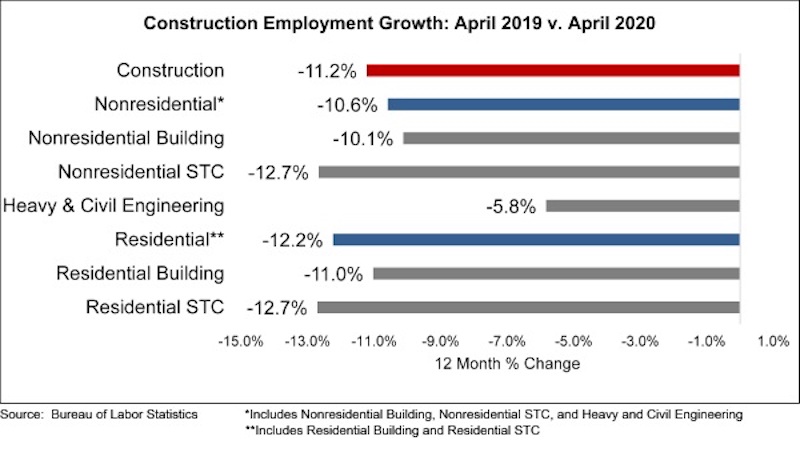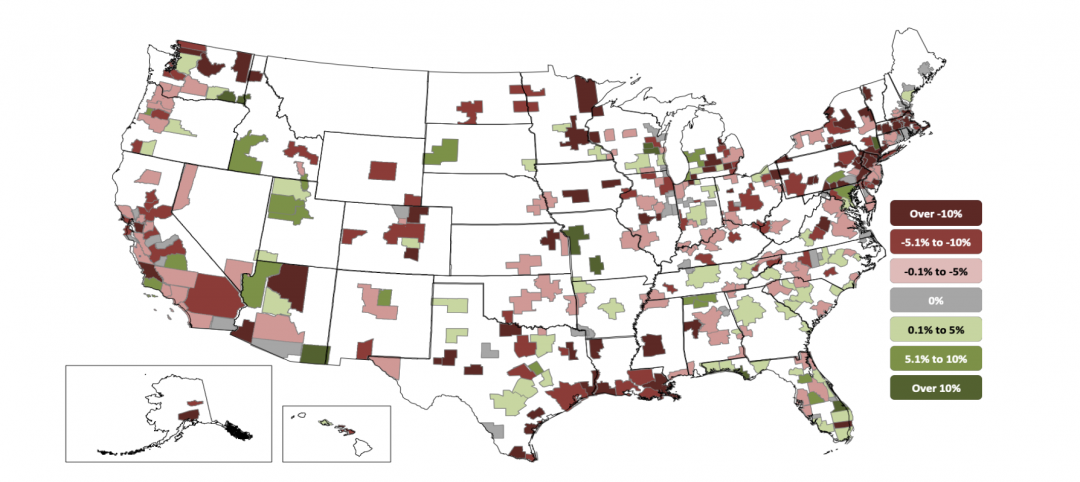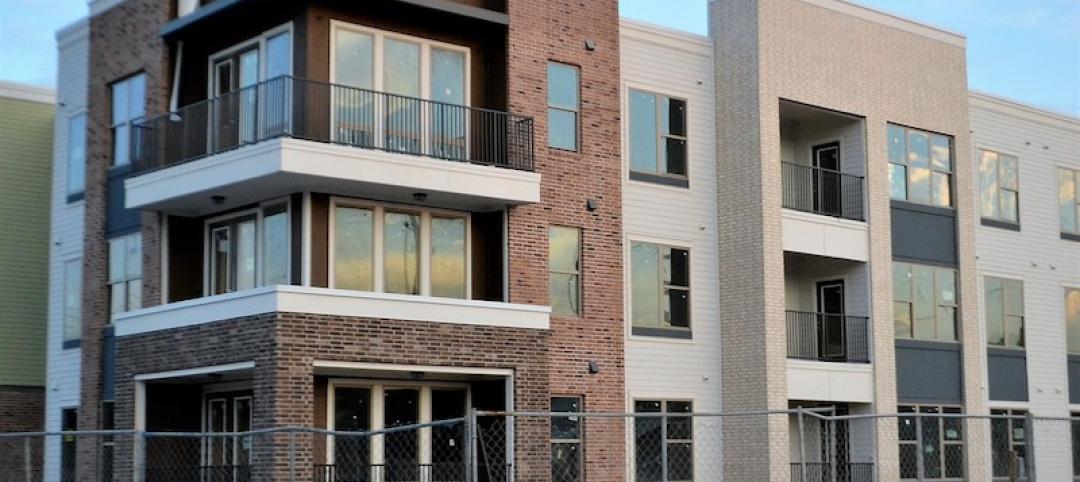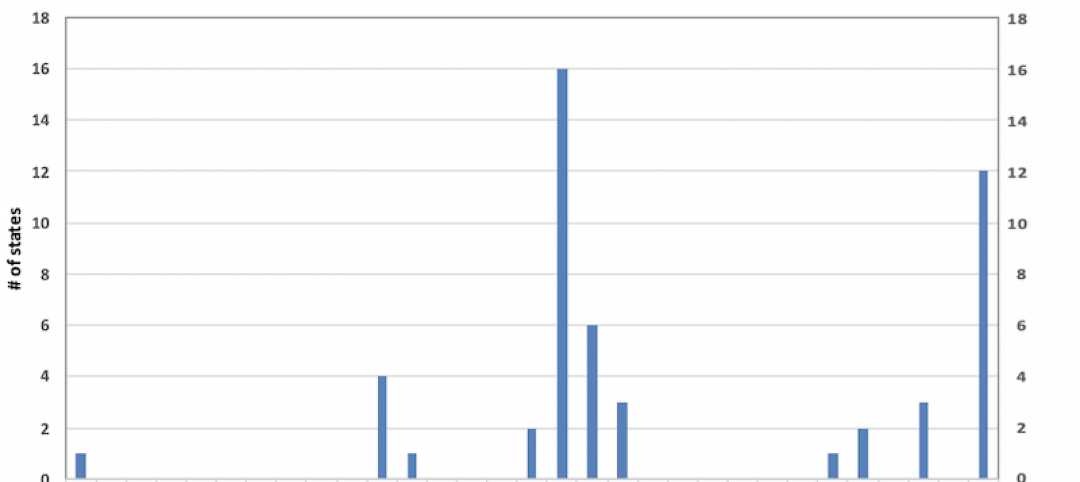The construction industry lost 975,000 jobs on net in April, according to an Associated Builders and Contractors analysis of data released today by the U.S. Bureau of Labor Statistics. This was the largest recorded decrease in construction jobs since the government began tracking employment in 1939, despite construction remaining an essential industry in much of the nation through April.
Nonresidential construction employment lost 560,500 jobs on net in April. There were job losses in all three nonresidential segments, with the largest decline registered among nonresidential specialty trade contractors, which lost 393,100 jobs. Nonresidential building lost 88,500 jobs, while heavy and civil engineering lost 78,900 jobs.
The construction unemployment rate was 16.6% in April, up 11.9 percentage points from the same time last year. Unemployment across all industries rose from 4.4% in March to 14.7% last month. This was the highest rate since the BLS started tracking unemployment in 1948. Because of technical reasons related to the BLS survey and a classification error in several responses, the unemployment rate is probably closer to 20%.
“The hope had been that construction activity would hold up well given the industry’s classification as an essential industry in much of the nation and the presence of substantial backlog coming into the crisis, which stood at 8.2 months in February, according to ABC’s Construction Backlog Indicator,” said ABC Chief Economist Anirban Basu. “But alas, in large measure, those hopes were not realized. The level of construction industry job loss in April easily surpassed that of the worst month sustained during the Great Recession, when 155,000 jobs were lost in March 2009. Between April 2006 and January 2011, construction industry employment declined by 2.3 million. The construction industry lost nearly a million jobs last month alone.
“Based on a combination of business confidence indicators, initial unemployment claims and other emerging data, May will represent another month of crushing construction employment loss,” said Basu. “Project postponements and cancellations are now commonplace, with construction backlog failing to be the protective shield that it normally is during the early stages of economywide recession.”


Related Stories
Market Data | Nov 2, 2020
More contractors report canceled projects than starts, survey finds
Construction employment declined in most metros in latest 12 months.
Multifamily Housing | Oct 30, 2020
The Weekly show: Multifamily security tips, the state of construction industry research, and AGC's market update
BD+C editors speak with experts from AGC, Charles Pankow Foundation, and Silva Consultants on the October 29 episode of "The Weekly." The episode is available for viewing on demand.
Hotel Facilities | Oct 27, 2020
Hotel construction pipeline dips 7% in Q3 2020
Hospitality developers continue to closely monitor the impact the coronavirus will have on travel demand, according to Lodging Econometrics.
Market Data | Oct 22, 2020
Multifamily’s long-term outlook rebounds to pre-covid levels in Q3
Slump was a short one for multifamily market as 3rd quarter proposal activity soars.
Market Data | Oct 21, 2020
Architectural billings slowdown moderated in September
AIA’s ABI score for September was 47.0 compared to 40.0 in August.
Market Data | Oct 21, 2020
Only eight states top February peak construction employment despite gains in 32 states last month
California and Vermont post worst losses since February as Virginia and South Dakota add the most.
Market Data | Oct 20, 2020
AIA releases updated contracts for multi-family residential and prototype residential projects
New resources provide insights into mitigating and managing risk on complex residential design and construction projects.
Market Data | Oct 20, 2020
Construction officials call on Trump and Biden to establish a nationwide vaccine distribution plan to avoid confusion and delays
Officials say nationwide plan should set clear distribution priorities.
Market Data | Oct 19, 2020
5 must reads for the AEC industry today: October 19, 2020
Lower cost metros outperform pricey gateway markets and E-commerce fuels industrial's unstoppable engine.
Market Data | Oct 19, 2020
Lower-cost metros continue to outperform pricey gateway markets, Yardi Matrix reports
But year-over-year multifamily trendline remained negative at -0.3%, unchanged from July.

















